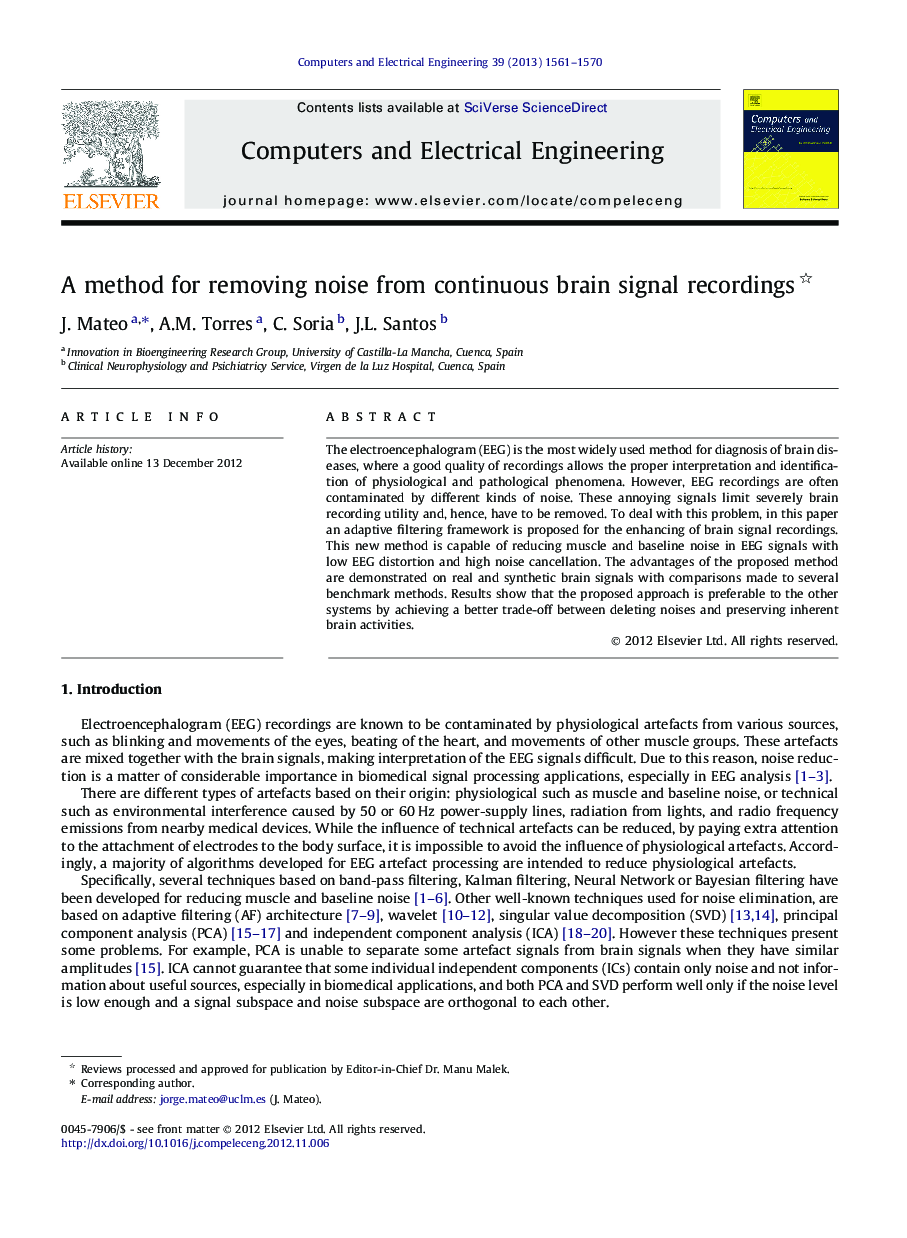| Article ID | Journal | Published Year | Pages | File Type |
|---|---|---|---|---|
| 455719 | Computers & Electrical Engineering | 2013 | 10 Pages |
The electroencephalogram (EEG) is the most widely used method for diagnosis of brain diseases, where a good quality of recordings allows the proper interpretation and identification of physiological and pathological phenomena. However, EEG recordings are often contaminated by different kinds of noise. These annoying signals limit severely brain recording utility and, hence, have to be removed. To deal with this problem, in this paper an adaptive filtering framework is proposed for the enhancing of brain signal recordings. This new method is capable of reducing muscle and baseline noise in EEG signals with low EEG distortion and high noise cancellation. The advantages of the proposed method are demonstrated on real and synthetic brain signals with comparisons made to several benchmark methods. Results show that the proposed approach is preferable to the other systems by achieving a better trade-off between deleting noises and preserving inherent brain activities.
Graphical abstractFigure optionsDownload full-size imageDownload as PowerPoint slideHighlights► An adaptive method based on Volterra system is proposed for filtering noise in biomedical recordings. ► The proposed solution addresses both real and synthetic signals. ► Several simulations have demonstrated the enhancement of the proposed method in comparison to other techniques. ► The results suggest that clinical information can be maintained. ► This method provides the best approach for obtaining both more signal reduction and low distortion of the signal results.
